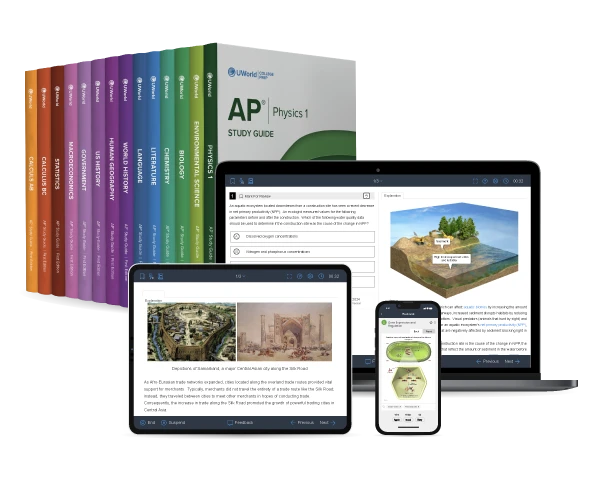How AP Self-Study Works and Why Students Choose It
Getting started with AP self-study courses takes some planning. Registrations generally open in the fall, between September and November. Students who register by the standard deadline pay a base administrative fee per subject, while late registrations through March may require an additional fee. Exams are held in May, with your local school serving as the testing center. On test day, you'll need a valid photo ID and registration confirmation to sit for the exam.
Students choose self-study AP courses for their flexibility, allowing them to fit studies around classes, sports, or jobs. They also gain access to subjects not offered at their school and can move at their own pace, often progressing faster than in a classroom. Self-study is more affordable than tutoring or dual enrollment, and it highlights independence and motivation—qualities valued by colleges. Ultimately, it provides both immediate benefits and long-term skills for success in college and beyond.
Easiest AP Exams to Self-Study? Here's What to Expect
Many students start exploring self-study AP courses by asking which subjects are the easiest to take on their own. It makes sense; you're juggling school, activities, and maybe even a part-time job, so finding a class that feels manageable and still earns college credit is appealing. The challenge, though, is that there isn't a single AP exam that's truly “easy” for everyone. A subject that clicks quickly for one student might feel overwhelming for another. In the end, success in AP self-study courses depends less on the subject you choose and more on how you prepare and stick to a study method that works for you.
Why Self-Studying AP Can Feel Hard
Plenty of students start AP self-study courses with the best intentions, but quickly hit roadblocks. The sheer amount of material can feel endless, and it's tough to know which topics are high-yield. Some students slip into passive learning habits like re-reading notes or highlighting, which might feel productive but don't lead to long-term retention. Without a solid structure, self-studying AP can feel frustrating and unproductive.
The good news? There are AP self-study courses designed to give you a clear, methodical approach. With guided lessons, structured practice, and tools that keep you on track, these programs make it easier to stay focused, avoid burnout, and steadily move toward your exam goals.
Which AP Exams Are Considered More Manageable?
Some subjects are often labeled the easiest AP exams to self-study, like AP Psychology, AP Human Geography, and AP Environmental Science. But it really depends on your personal strengths and learning style:
- If you're into science, AP Biology, Chemistry, or Physics might click better, especially with strong visuals and lots of practice questions.
- If you're numbers-driven, AP Calculus or AP Statistics may feel straightforward when broken into clear steps.
- If you're drawn to reading and writing, AP History or English exams can feel more natural since you're used to analyzing texts and building arguments.
Together, these steps keep you engaged rather than zoning out, making AP self-study feel effective instead of overwhelming. The key is a smarter approach: rather than gaming the system by chasing “easy” subjects, you can make almost any AP exam more manageable with the right strategy.
How UWorld Makes Self-Study AP Courses Easier
Preparing for AP exams on your own can feel overwhelming, but UWorld's AP prep courses make AP self-study more organized and effective by giving you expert lessons, detailed resources, and exam-level practice—all in one place.
The Watch, Read, Practice Method
UWorld's approach to self-study AP is built around Watch, Read, Practice:
- Watch – Expert-led video lessons simplify even the toughest AP topics with clear, step-by-step explanations.
- Read – Digital and print study guides highlight the key material exam graders look for, reinforced with visuals and examples.
- Practice – Thousands of exam-style questions push you to apply knowledge, learn from mistakes, and strengthen memory.
Why Active Recall Matters
One of the most powerful study techniques built into UWorld's platform is active recall. Instead of just re-reading notes, UWorld's tools push you to retrieve knowledge again and again until it sticks.
- Smart Flashcards – With spaced repetition built in, you'll review concepts right before you're about to forget them, making memory stronger over time.
- Hints and Alternative Methods – When you get stuck, UWorld shows you different ways to solve a problem, reinforcing deeper understanding.
- Timed Practice Questions – By applying knowledge under pressure, you're constantly recalling and using information in real exam conditions.
This approach doesn't just help you score higher on AP exams. By self-studying AP with UWorld's active recall system, you're also building the same skills you'll need for college courses, graduate school, and even professional exams later on.
UWorld Features That Make a Difference
Beyond Watch, Read, Practice, UWorld gives you additional tools that make AP course self-study smoother and less stressful:
- Built-In Support Tools – Vocabulary help and formula sheets to guide you when you get stuck.
- Study Planner – A customizable schedule that keeps you on track, organizes your workload, and prevents overwhelm.
- Personalized Dashboard – Track your progress, areas of improvement, and focus where you need improvement most.
- Flexible Access – Study anywhere with the mobile app and choose subscription lengths that fit your budget and timeline.
Real Reddit User Review/References
“I bought UWorld last year for bio, and it legit increased my mcq score by at least 15 questions. It was probably the only reason I was able to get a 5 this year because the FRQs were terrible”. https://www.reddit.com/r/APStudents/comments/14yasmb/comment/jrtjgig/?utm_source=share&utm_medium=web3x&utm_name=web3xcss&utm_term=1&utm_content=share_button
The Bottom Line: Self-Study AP Courses Made Simple
Self-study AP courses are not just a way to earn college credit; they are an opportunity to build independence, discipline, and the study habits you will need in the years ahead. By focusing on proven strategies like Watch, Read, Practice, and strengthening memory with active recall, you can make even the most challenging subjects feel manageable.
The real takeaway is simple: instead of chasing what might seem like the easiest AP courses to self-study, concentrate on learning methods that actually work. With the right approach, your effort pays off twice — higher AP exam scores today and stronger learning skills that will carry you through college and beyond.

Frequently Asked Questions (FAQs)
What’s the hardest AP exam to self-study?
AP STEM and Math subjects tend to be more challenging because they involve tricky problem-solving and lab-based thinking. But the truth is, every AP subject requires effort and dedication. So rather than focusing on which ones are easy or hard, try having the right approach and strategy.
Here’s what you can do: Create a study plan that fits your pace, stay consistent, and choose a prep course that helps you understand tough concepts easily, study smarter, and score higher.
Can I self-study multiple AP exams at once?
You can, but don’t go overboard. Sticking to 2 or 3 APs at a time is a smart move. Pick subjects that go well together and make a solid schedule so you don’t get overwhelmed trying to study everything at once.
Can I get a 5 by self-studying?
Yes, totally! Plenty of students self-study and score a 5 by using the right resources and consistently practicing lots of AP-style questions. It takes discipline, but with good planning and effort, you can absolutely nail it.
Do I need a teacher or tutor if I’m self-studying?
Not necessarily. While a tutor can be useful if you need extra help or accountability, it’s not the only way to succeed. Many students reach their AP goals by staying organized, practicing regularly, and using reliable tools like UWorld’s comprehensive prep books and realistic question bank.
Can I pass an AP exam with only UWorld?
Yes! Many students have successfully self-studied for AP exams using UWorld alone. It offers AP prep books for 15 subjects, thousands of AP-style questions, detailed explanations, and helpful study tools like flashcards, performance tracker, digital notebooks, and more. With UWorld, you can master the content, sharpen your problem-solving skills, and walk into the exam feeling confident and prepared.
When should I start preparing for AP self-study?
Ideally, start your AP self-study about 3 to 6 months before the exam. This gives you plenty of time to fully learn the content, practice AP-style questions, and get comfortable with timed simulations without the stress of last-minute cramming.
How much does AP self-study cost?
Self-studying for an AP exam is generally more affordable than taking formal classes, but costs can vary depending on the resources you choose. Here’s a breakdown:
- AP Exam Fee: Each AP exam typically costs around $100.
- Prep Courses and Materials: High-quality self-study resources, like UWorld AP prep, offer comprehensive AP prep books, thousands of practice questions, and study tools, usually costing about $100–$150 per subject.

